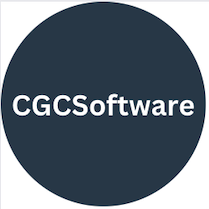NextJS, a new journey
Over the past few weeks, I’ve been diving into #NextJS and #React for a couple of reasons. Firstly, I’m a firm believer in continually learning new things, whether it’s a different framework or a fresh language. Plus, let’s face it, React is a big deal in the business of frontend development. As a freelancer or contractor, having some React know-how opens up a wider range of projects to dive into.
My initial impression of React is pretty positive. It’s a lightweight library that’s perfect for whipping up frontend apps, especially ones that need to hook into hefty APIs like those powered by Node.js or .NET. If your team is all about the frontend/UI side of things, React is definitely worth considering.
Comparing it to Angular, React is a whole different beast. It doesn’t come packed with all the bells and whistles Angular does out of the box (think routing, testing, RxJS, Services, etc.). But hey, Angular’s been making strides to simplify things lately, which is great news for its future.
Now, onto NextJS. It’s like the Swiss Army knife of application frameworks. It gives you all the tools you need to build a top-notch app right out of the gate. I’ll admit, the concept of Server components and Client components threw me off a bit coming from an Angular background. But hey, in NextJS, everything’s a Server component unless you say otherwise. Plus, having server-side rendering baked in is a nice touch.
I’m also digging NextJS’s App Router and file-based routing. Compared to Angular’s routing, it’s way more straightforward. Sure, other frameworks like AnalogJS are jumping on the file-based routing train too, but I haven’t gotten my hands dirty with AnalogJS just yet.
So, my plan? Stick with NextJS and see where it takes me. I’ll be putting my name out there for contracts and projects that are NextJS-friendly.
One thing I firmly believe is that no matter which framework you’re into, a good web developer can adapt to any of the big ones out there (Angular, React, Vue). It’s not just about how many years you’ve racked up using a framework—it’s about being a team player, understanding what the client needs, communicating effectively, staying open to learning from others, and bouncing ideas around.
Anyway, I’m excited to see where this NextJS journey leads me!
